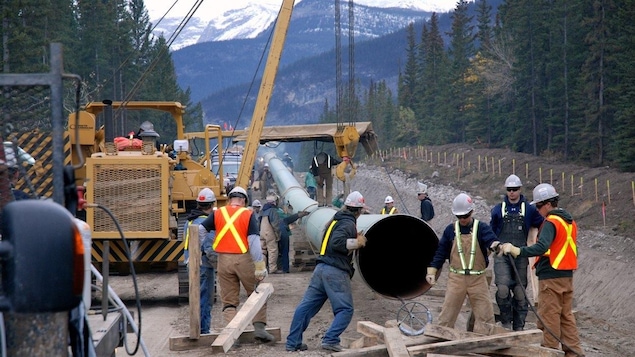Trans Mountain Corporation says the higher costs for this project are due to inflation, supply chain issues, and flooding in British Columbia in November 2021.
The Trans Mountain project involves the expansion of an oil pipeline between the Edmonton region, in Alberta, and the offshore oil terminal in Burnaby, in British Columbia.
Canada’s Finance Minister, Chrystia Freeland, said the federal government will not foot the bill for these cost increases.
Consistent with the commitment we made to Canadians last year, we will not be investing additional public funds in this project as construction nears completion.
Writing hostess says so The federal government does not intend to retain ownership of the project for the long term and will begin the divestment process in due course
.
The federal government bought the project in 2018 for $4.5 billion.
Higher costs that make reselling more difficult
For Richard Mason, a former oil executive now affiliated with the University of Calgary’s School of Public Policy, this sharp increase in the project’s construction cost will make its eventual resale more difficult.
He explains that, according to the agreement reached with the oil companies that will use the pipeline to export their production, these cost overruns cannot be offset by high user fees.
” It is very likely that the federal government will have to write down the value of its investment substantially because it is unable to generate revenue from it. So it’s a very difficult situation. »
Evidence of poor investment, say environmentalists
On the part of environmentalists, we stress the magnitude of the sums involved in this project. For Eleanor Rogot of Environmental Defense Canada, those billions should have been invested in efficiency and energy transition, rather than being used to export fossil fuels.
“It must be disappointing to Canadians that the government made such an economic mistake. It doesn’t make sense and I think it’s time to admit that, that it doesn’t make sense, and admit your mistake instead of continuing to sink.”
” It’s environmental madness for biodiversity, it’s madness for climate, it’s madness for indigenous rights. […] And then now, those economic costs have been added. »
The environmentalist also points out the irony of a situation where flooding in British Columbia, which can be linked to climate change, increases the costs of a project that will increase the export of oil from the continental sands.
Crown Corporation Trans Mountain Corporation highlights the economic impact of building this project, particularly on Indigenous businesses, which would have benefited from a quarter of the contracts awarded to date.
In a press release, Trans Mountain also states this The project is expected to be completed by the end of the year and the network is expected to start operating in early 2024.

“Music guru. Incurable web practitioner. Thinker. Lifelong zombie junkie. Tv buff. Typical organizer. Evil beer scholar.”







More Stories
It is becoming more and more difficult to be part of the middle class
Provinces ask Ottawa to stop encroaching on their jurisdictions | Federal budget 2024
After giving big bonuses to the bosses, the deposit and placement fund fires the employees